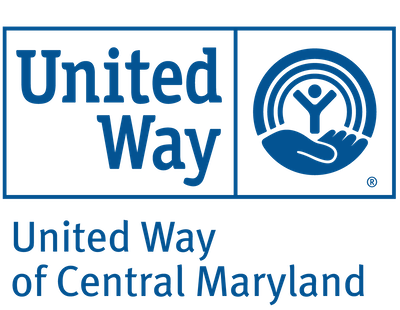New research: 50 percent of People with Disabilities in Maryland are Living in Financial Hardship

New report reveals that federal poverty data significantly undercounts how many people with disabilities are struggling to afford the basics.
Baltimore, MD (July 26, 2022) – The number of people with disabilities in Maryland who struggle to afford the basics is far higher than federal poverty data indicates according to a new report from United Way of Central Maryland and its research partner United For ALICE.
In 2019, while 16 percent of residents with disabilities were deemed in poverty, 34 percent — more than twice as many — were ALICE (Asset Limited, Income Constrained, Employed). ALICE households earn more than the Federal Poverty Level but less than what it costs to live and work in the modern economy. Combined, 50 percent of Maryland residents living with disabilities were below the ALICE Threshold, with income that doesn’t meet the cost of basic necessities like housing, child care, health care, transportation and a smartphone plan.
“On the 32nd anniversary of the Americans with Disabilities Act, we see that residents with physical, mental or emotional conditions who are struggling financially are not only being undercounted but underserved,” said United For ALICE National Director Stephanie Hoopes, Ph.D. “There is still work to do as having a disability puts individuals at substantial risk for financial instability, more than many other factors. Daily, and even more so during the COVID-19 pandemic, these individuals face barriers to accessing a quality education, secure jobs and critical supports.”
The ALICE in Focus: People With Disabilities report and interactive tools reveal that during the pandemic, people with disabilities below the ALICE Threshold were more than four times more likely to be anxious than those without disabilities.
The new research also shows that outdated federal guidelines prevent the majority of residents with disabilities who are living in financial hardship from accessing critical public assistance. According to the new report, a staggering 85 percent of residents with disabilities below the ALICE Threshold did not receive Supplemental Security Income (SSI). The program requires that recipients have income below the poverty level, be unable to work, have a “severe” impairment and have less than $2,000 in their bank accounts, $3,000 if they are a married couple.
“Income eligibility requirements for SSI haven’t been updated in nearly four decades, which is one of the big reasons why more nearly 300,000 residents were shut out of receiving a much-needed financial lifeline,” said Franklyn Baker, CEO, United Way of Central Maryland. “By using data that takes into account the true cost of living — we can establish critical supports that help those who need it the most.”
Other findings from ALICE in Focus: People With Disabilities include:
- Black and Hispanic residents with disabilities — 61 percent and 56 percent respectively — disproportionately experienced financial hardship compared to 44 percent of white people with disabilities.
- Females with disabilities struggled more to afford the basics — 54 percent — compared to 46 percent of males with disabilities.
- Maryland saw 41 percent of residents with disabilities below the ALICE Threshold spend 35 percent or more of their income on their mortgage, plus utilities, taxes and insurance. Nearly two-thirds of people with disabilities below the ALICE Threshold living in renter households were paying 35 percent or more of their income on rent.
- People with disabilities in Maryland make up just 5 percent of the workforce. Whether working full or part time, people with disabilities were more likely to be living paycheck to paycheck than those without disabilities: 25 percent of full-time workers with disabilities were below the ALICE Threshold compared to 21 percent of full-time workers without disabilities.
Hoopes also pointed out that rates of hardship are likely even higher than could be counted as data is not available for individuals living in nursing homes, correctional facilities and other group settings.
More data is available through the ALICE in Focus: People With Disabilities interactive data dashboard, which provides filters for regional and local geographies, age, race, disability status, living arrangements and household work status. Visit UnitedForALICE.org/Focus-Disabilities.
ALICE in Focus: People With Disabilities marks the second installment in the ALICE in Focus Research Series, which draws from the U.S. Census Bureau’s American Community Survey (ACS) Public Use Microdata Samples (PUMS). Each installment in the series highlights a specific segment within the ALICE demographic. The first installment focused on children; the next report will feature veterans.
For more reports and data from United Way of Central Maryland and its partners, visit www.uwcm.org/reports.
# # #
United Way of Central Maryland helps the working poor and those in poverty access basic needs like housing, healthcare, jobs, and education. The nonprofit’s programs promote equity, create opportunity, and improve the lives of our neighbors and the neighborhoods they call home. For nearly 100 years, United Way has tackled the toughest challenges in Baltimore City and Anne Arundel, Baltimore, Carroll, Harford and Howard counties. Learn more at uwcm.org.
About United For ALICE
United For ALICE is a driver of innovation, research and action to improve life across the country for ALICE (Asset Limited, Income Constrained, Employed) and for all. Through the development of the ALICE measurements, a comprehensive, unbiased picture of financial hardship has emerged. Harnessing this data and research on the mismatch between low-paying jobs and the cost of survival, ALICE partners convene, advocate and collaborate on solutions that promote financial stability at local, state and national levels. This grassroots ALICE movement, led by United Way of Northern New Jersey, has spread to 24 states and includes United Ways, corporations, nonprofits and foundations in Arkansas, Connecticut, Delaware, Florida, Hawai‘i, Idaho, Illinois, Indiana, Iowa, Louisiana, Maryland, Michigan, Mississippi, New Jersey, New York, Ohio, Oregon, Pennsylvania, Tennessee, Texas, Virginia, Washington, Washington, D.C., West Virginia and Wisconsin; we are United For ALICE. For more information, visit: UnitedForALICE.org.
